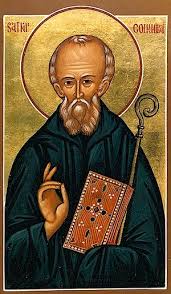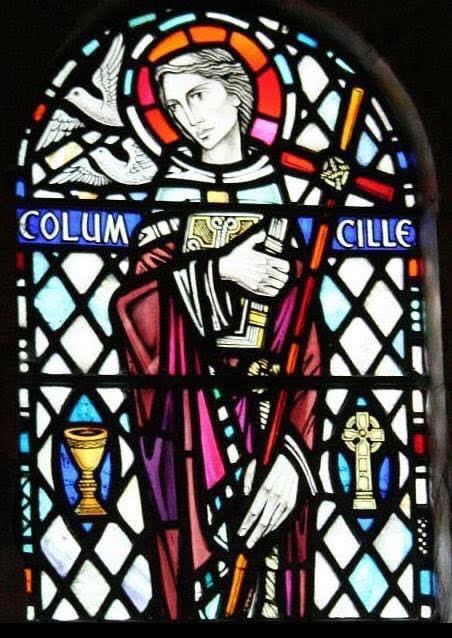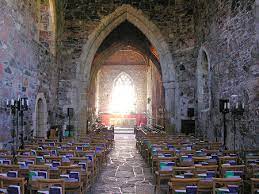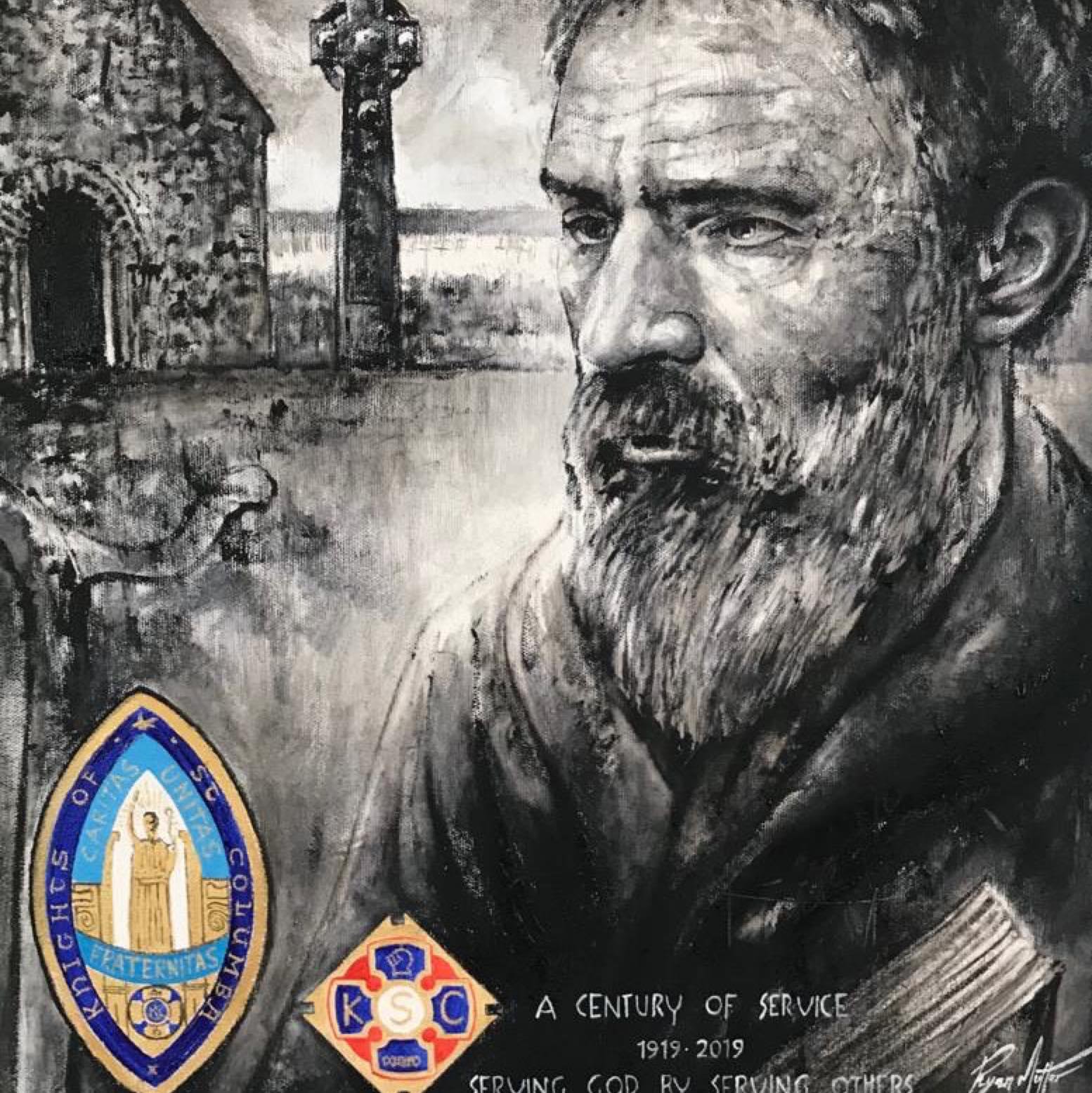Our Patron St Columba

The choice of St Columba, as the patron saint of the Order of the Knights of St Columba, was inspirational. Time has proven; that no wiser choice could have been made than that of the missionary Saint, who brought the Christian faith to Scotland and Northern England. Colum, named Colum-cille, and in Latin Columba (a dove), was born at Gartan in Tyr-connel, County Donegal, in 521.
He was of noble extraction from Niall, King of Ireland. He learned the Divine Scriptures and the lessons of an ascetic life under the Bishop, St. Finian. Adva nced to the Priesthood in AD 546, in a short time he had many disciples.
St Columba’s manner of living was always most austere. It is said he lay on the bare floor with a stone for his pillow, and never interrupted his fast. Yet his devotion was neither morose nor severe. It was in Iona, that St. Columba came ashore from Ireland and began the Christianisation of Scotland.
A place of pilgrimage and veneration throughout the centuries, for reasons of faith it was also a cradle of the Celtic Kingdom of Scotland. The traditional date for St. Columba’s landing in Iona (in the diocese of Argyll and the Isles) is AD 563; St Bede has the definite date of AD 565; and he gives it not only in manuscripts, which are almost contemporary with St Bede himself, but he also says that it was at the time when Justin Minor succeeded the Emperor Justinian, and that was in November, AD 565. St Columba is believed to have died in Iona, on 9th June AD 597, some 34 years after his arrival. His date of his death has only been attained by calculation; it is probable however, the date has also been disputed.
The last words attributed to St. Columba, to his followers, before he died were: –
“These, O my children, are the last words I address to you – that you be at peace, and have unfeigned charity amongst yourselves, and if you follow the example of the Holy Fathers, God the Comforter of the good will be your helper, and abiding with him will intercede for you, and he will not only give sufficient to supply the wants of the present life, but will also bestow on you the good and external rewards which are laid up for those who keep his commandments.”



